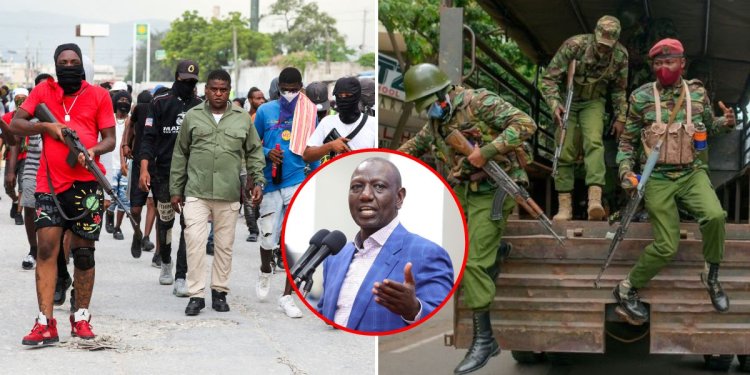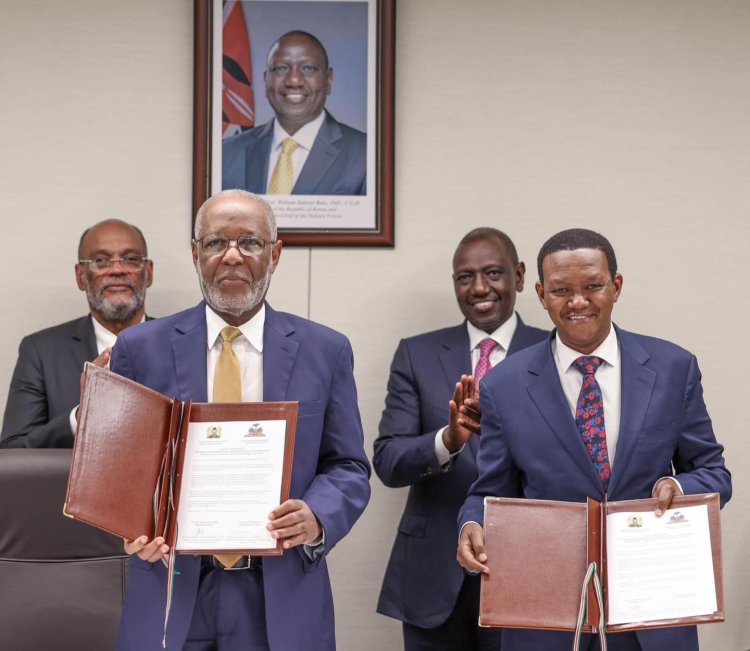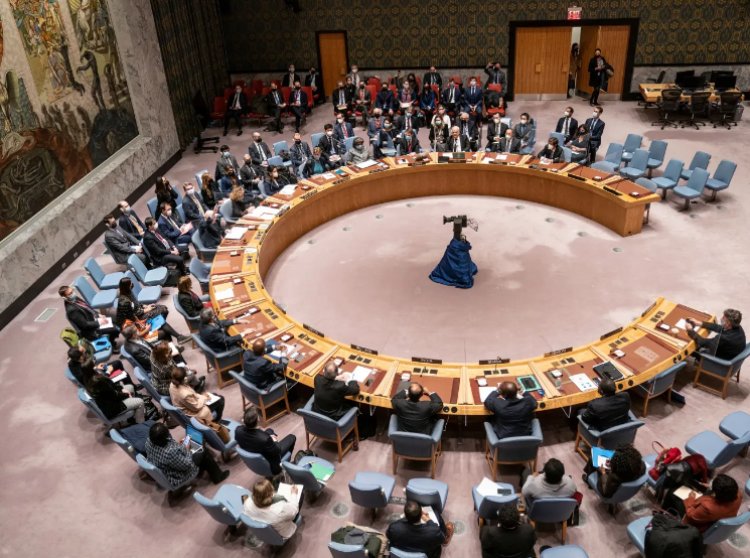Ruto's 3 Demands To Kenya Police During Mission To Haiti
Ruto recalled pitching to the General Assembly of the United Nations (UN) that the UN Security Council ought to deliver a framework that would facilitate the deployment of a multinational security support mission to Haiti

President William Ruto has issued three strict rules to the Kenya Police after they were cleared by the United Nations (UN) Security Council to lead a multinational force to restore peace and tranquillity to Haiti in North America, which has been controlled by gangs.
In a recorded speech at State House, the Head of State noted that the police must exercise moral responsibility and fundamental justice in the Herculean task of leading the security forces to bring normalcy to the gang-controlled Caribbean nation.
Ruto also called for the force to step up actions to adhere to the demands of emergency relief and humanitarian aid as well as intervene in matters regarding public health and conservation of the country's environment.

President William Ruto witnessed the signing of an agreement on September 21, 2023, that will pave the way for Kenya to deploy police officers to Haiti. /ALFRED MUTUA
"The situation in Haiti demands, as a matter of humanitarian consideration, moral responsibility and fundamental justice, that actions be scaled up significantly to meet the demands of emergency relief, humanitarian aid, support for livelihoods and major interventions in public health and environmental protection," the President stated.
During his speech, Ruto recalled pitching to the General Assembly of the United Nations (UN) that the UN Security Council ought to deliver a framework that would facilitate the deployment of a multinational security support mission to Haiti, as part of a holistic multilateral response to the challenges faced by that nation.
Specifically, he on Thursday, September 21 pleaded for a resolution under Chapter 7 of the Charter, with appropriate provisions to facilitate support for the Haiti National Police in enhancing its capacity to effectively provide security to the people of Haiti, their infrastructure and property.
"I am delighted that today, the Security Council has directly answered this call with UNSC Resolution 2699 (2023), which mandates the Multinational Security Support Mission to reinforce the Haiti National Police with operational support and other joint interventions, to enhance its institutional capacity, with the aim of increasing its effectiveness in defeating the onslaught of criminal gangs, and the rampant violent crime, human, arms and drugs trafficking, as well as other atrocities," Ruto reacted to UNSC's resolution made on Monday, October 2.
According to the President, the mission is also mandated to secure the country's critical infrastructure including air and seaports as well as other vital transit arteries and intersections.
Ruto welcomed the resolution as an overdue and critical instrument to define the multinational mission, which is a foundational intervention, to provide the necessary conditions for Haiti to consolidate its development and governance.
"It is therefore absolutely essential that resources as well as operational scope available to the UN team, as well as other humanitarian and development actors on the ground in Haiti, be appropriately reinforced," he added, despite human rights activists opposing the mission owing to Kenya Police's torrid record of human rights violations, including extra-judicial killings.
US Ambassador to the UN Linda Thomas-Greenfield warned that the UN would be keenly following the mission to ensure Kenya's police respects and upholds human rights. The foreign troops deployed to Haiti will thus be vetted, monitored and held accountable for any grievances raised in line with the mission.
“The Kenyans have participated in international peacekeeping forces before; they come with a lot of experience, but they also know that we will take the vetting responsibilities very, very seriously and that the monitoring and accountability will be seriously looked at as we work to put this force on the ground,” Greenfield declared while explaining the reason for the UN to create a sense of accountability and transparency.
UN's guidelines were also issued in line with failed previous international interventions in Haiti, which led to both a cholera outbreak and horrific sexual abuse attributed to peacekeepers.
Further, the ambassador explained that the 1,000 Kenyan police will be collaborating with the Haitian Police to restore stability and security to the Caribbean country. The peacekeepers will be supported financially and logistically by the US as well as other UN countries.
During the voting at UNSC, 13 countries voted in favour of the mission, with no votes recorded against the resolution.
However, Russia and China abstained from the vote due to reservations about the blanket use of force to solve the Haiti crisis under Chapter 7 of the founding U.N. Charter.
The council comprises 15 countries, with the United States, United Kingdom, China, France, and Russia having Veto powers.







